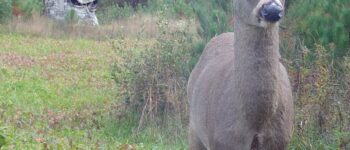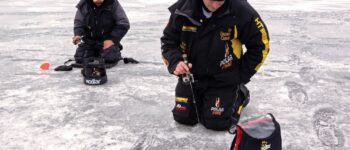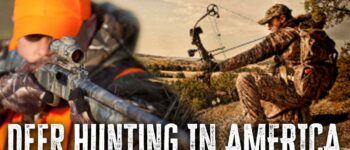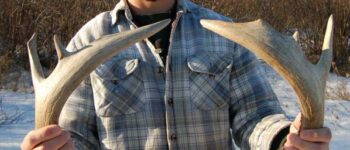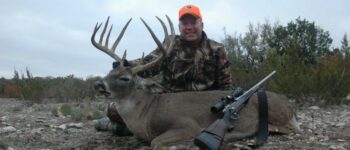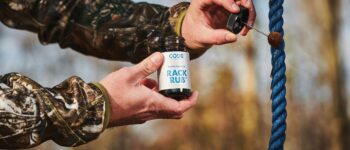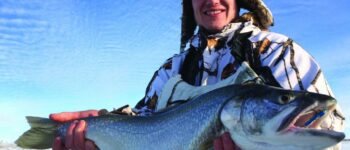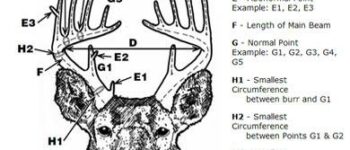Ask 100 dedicated deer hunters about their experiences with deer scents, and you’ll probably get as many different anecdotes on how they perform for them … or don’t. Undoubtedly, you have several experiences of your own that guide you in your deer scent selection and application.
Much as we wish there was a magic bullet for bringing in big bucks during the rut, the fact is that we’re always dealing with variables out of our control. You may set up a scent station with doe estrus during the peak of the rut, watch a nice buck roll past without even pausing to sniff, and swear up and down that the scent doesn’t work.
You are reading: Best Scents to Use During the Rut
Maybe it didn’t for that particular buck or maybe the wind was such that the scent never touched his nose. Then again, the buck may have already been following a doe scent he picked up a hundred yards before reaching your stand and simply wasn’t going to be diverted by a new smell. Regardless, there’s a good possibility that, right or wrong, you determine that the scent used was no good and conclude from that experience that deer scents really don’t matter when bucks are in the heat of the rut.
On the other hand, you may have put down a scent trail early in the morning and had a buck follow it right to your stand. From that, you might conclude that either scent-dragging is the way to go or the scent you used is the best that was ever made in spite of the fact that you never had a repeat performance in several years.
The thing about deer scents is that there are no guarantees. Instead, deer scents should be approached as a means of increasing the odds of success, raising the likelihood of a buck being drawn into your shooting zone, or increasing the percentage of time a buck will linger in your hunting area to investigate scent stations (wicks, drippers, mock scrapes, et cetera).
With that understanding, the question becomes what scents are most effective during the whitetail’s rut phase that’s going on over the next few weeks? If you’re new to this game, the short answer is, it’s all about … um … procreation. Here’s what you need to know.
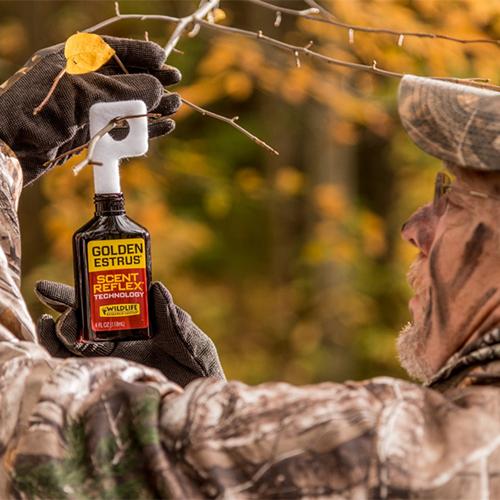
Key Whitetail Rut Scents
Read More : Today We Honor the Patron Saint of Hunters | Deer & Deer Hunting
Estrus Scent xe2x80x94 The sole mission of a mature buck during the rut is to locate a doe that is ready to be bred. The short version of how he does this is by identifying pheromones in a doe’s urine that indicates her breeding status. A doe produces this unique odor for about three days, the second day of which she is ready to be bred. That’s not a lot of time, so a buck will zero in on this scent and try to stay with a breedable doe until they successfully mate and she no longer produces the estrus scent. At that time, the buck will move on to find another receptive doe.
This is why a quality estrus doe scent is most desired by hunters. It’s the smell bucks are looking for, so it stands to reason (and is upheld by anecdotal evidence) that when the bell curve of does in your area are coming into estrus, a doe urine-based scent with the estrus pheromone is one of the most valuable tools to have in your arsenal.
Buck Tarsal Scent xe2x80x94 Bucks have several glands on their body that they use as markers to identify themselves and their territory. Chief among these is their tarsal gland. These are the fatty glands located on the inside of their legs that they urinate on (called rub-urination). The urine interacts with a stew of bacteria found in the hair around the tarsal glands to produce an odor that is unique to the individual deer. Biologists believe the information contained in these tarsal gland odors not only provide positive identification of a deer, but also of other markers, such as health and possibly social status.
Although bucks are keyed into estrus scent during the rut, tarsal scent from another buck isn’t necessarily something to be ignored. In fact, it tells a resident buck that another buck is in his territory. Whether the resident buck takes this as a challenge or is simply curious as to who this interloper may be, there’s a good chance that he’ll be drawn to the scent and spend a moment to investigate. That is the advantage of using tarsal scent, especially during the pre- and early-rut phase.
Combination/Full-Spectrum Scents xe2x80x94 Another scent strategy to employ during the rut is a combination approach, wherein you deploy both estrus doe urine and buck urine with tarsal scent. As with the tarsal scent, the idea is to either pique the territorial instincts of the resident buck or leverage the curiosity factor to bring him in. The difference is that by adding doe estrus scent to the mix, the territorial/challenge aspect may ramp things up a notch for a dominant resident buck. On the flip side, a smaller, non-dominant buck may feel threatened by the dual scents, thinking that a bigger buck is busy tending a doe in the area. He may try to avoid a butt-kicking and move out of the country.
If you’d rather not carry two bottles with you, a full-spectrum doe and buck urine scent makes things handy.
Deployment Tips
How you deliver your choice of scent should also be given careful consideration. For estrus scent, we like to employ a couple of strategies.

Read More : 6 Tips for Hunting the Rut | Deer & Deer Hunting
When bucks are on the run, scouring the countryside for hot does, wicks are a fine choice. Dip them in the scent bottle so they are well-saturated and hang them high xe2x80x94 around six or seven feet up on branches so the breeze and thermals can carry the scent as far as possible. The idea is to grab the attention of any passing bucks and bring them in close. This means setting out two or three wicks in a semi-circle around your stand, the distance depending on whether you are bowhunting or carrying a long gun. The tricky part is setting up so that the wind carries the estrus scent, but your scent stays off to the side. Of course, extreme scent management is essential because your scent will invariably ride shotgun with the estrus scent.
Scent-dragging is another tactic that can be especially effective during the seek-and-chase phase of the rut. The common practice is to attach a scent-soaked wick to a cord and let it drag behind you as you walk to your stand. This increases the chance that a buck will cut your trail and follow the scent to your stand. We’ll usually start the drag 100 to 200 yards out from our stand. That’s far enough to cut off a buck while increasing the odds that he will follow the scent trail to us. If you start the drag too far away from your stand, the buck may head in the opposite direction and never reach you.
We tend to use estrus scent for most drags but will sometimes combine it with buck urine to amp things up.
If you intend to hunt over natural or mock scrapes, a dripper is the way to go. We like a full-spectrum scent for these setups to simulate a buck and doe visiting the scrape. This can tickle the territorial instincts in the resident dominant buck and appeal to the curiosity of smaller bucks. Our choice in drippers is the Magnum Scrape-Dripper because a 4-ounce bottle will work for two or three weeks xe2x80x94 enough to cover the core rut in our area.
The rut is the most exciting time of year for the deer hunter. The action tends to be fast paced, often unpredictable, and is always an adrenaline rush. It’s also the time of year when scents can exert their greatest influence for the hunter. Try these scents and scent delivery strategies this year, and you’ll likely gain experience that will serve you well in seasons to come.
xe2x80x94 PAID PARTNER CONTENT. This content is brought to you by a D&DH advertising sponsor.
The Truth About Mock Scrapes

Source: https://raysthesteaks.com
Category: Hunting
